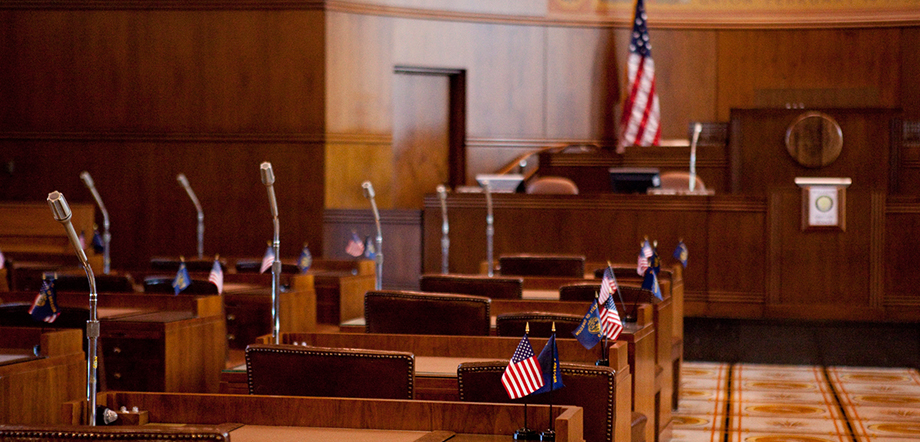Client Alerts
Federal Judge Vacates $228M Damages Award in BIPA Trial and Orders New Damages Trial
July 2023

Client Alerts
Federal Judge Vacates $228M Damages Award in BIPA Trial and Orders New Damages Trial
July 2023
On June 30, 2023, U.S. District Judge Matthew Kennelly of the Northern District of Illinois vacated a $228 million damages award in Richard Rogers v. BNSF Railway Co., the first case tried to a verdict under the Illinois Biometric Information Privacy Act (BIPA), and ordered a new trial limited to the question of damages. The court relied upon the Illinois Supreme Court’s decision in Cothron v. White Castle System, Inc. that the amount of damages is discretionary, not mandatory. As a result, the damages award after a finding of liability is a question for the jury.
Background
After the first BIPA trial in October 2022, Judge Kennelly entered a $228 million judgment after the jury found that BNSF had recklessly or intentionally violated BIPA 45,600 times (one violation per class member). Section 20 of BIPA states: “A prevailing party may recover for each violation: . . . against a private entity that intentionally or recklessly violates a provision of this Act, liquidated damages of $5,000 or actual damages, whichever is greater.” 740 ILCS 14/20 (emphasis added). The court multiplied the number of BIPA violations by $5,000 to arrive at the $228 million.
Four months later, the Illinois Supreme Court issued its ruling in Cothron v. White Castle System, Inc., in which it held that the statute of limitations under BIPA accrues with each alleged violation. See February 2023 Client Alert. However, in discussing how its decision affected potential damages, the court noted: “[i]t also appears that the General Assembly chose to make damages discretionary rather than mandatory under [BIPA]” because of the use of the word “may” in section 20.
BNSF filed post-trial motions, which included moving for a new trial or to alter or amend the damages award because the $5,000 per violation damages amount is discretionary, not mandatory, and should be an issue for the jury. The court agreed.
The Court Finds that Damages Under BIPA Are Discretionary
The court began its analysis by explaining its previous entry of damages, noting that the statute does not include the words “up to” or any other language suggesting that the Illinois legislature intended damages to be a range. Rather, it states that a prevailing party may recover the greater of actual damages or “liquidated damages of” $1,000 or $5,000. 740 ILCS 14/20(1), (2).
But the task of federal courts is to decide the question “based on how it believes the Illinois Supreme Court is likely to rule.” In so doing, federal courts “are to take into account trends in a state’s intermediate appellate decisions, but the focus is always a prediction about the state’s highest court.” “Dicta from a state supreme court is good evidence of how the court would decide an issue it has not yet directly encountered . . . . [and] offers the clearest insight into how the court would rule[.]”
Since the trial, the Illinois Supreme Court cited to the use of “may” in section 20 and a decision by the Illinois Appellate Court in concluding that “[i]t also appears that the General Assembly chose to make damages discretionary rather than mandatory under [BIPA].” Cothron v. White Castle Sys., Inc., 2023 IL 128004, ¶ 42 (citing Watson v. Legacy Healthcare Fin. Servs., 2021 IL App 210279, ¶ 66 n.5, 198 N.E.3d 571, 582 (“[a]lthough we do not address the issue of damages . . . we observe that damages are discretionary not mandatory. [Section 20 of BIPA] introduces a list of possible damages with the statement that this list constitutes what a ‘prevailing party may recover.’”)). And because, in federal court, “class action plaintiffs may obtain a jury trial on any legal issues they present,” the amount of damages under BIPA section 20 is discretionary and should be decided by the jury (citing Ortiz v. Fibreboard Corp., 527 U.S. 815, 845–46 (1999)).
Next Steps for Companies Using Biometrics in Illinois
The BNSF decision keeps open the option for companies to argue against the application of a strict $1,000/$5,000 per violation framework to avoid unreasonable damages awards. The prospect of an award other than automatic liquidated damages may help curb excessive settlement demands from the plaintiff’s bar. On the other hand, it remains to be seen whether entrusting this decision to a jury will have the desired impact of more reasonable damages awards or assuage the lingering uncertainty of how damages may be awarded under BIPA. As courts continue to analyze these and other issues surrounding BIPA, it remains essential that those deploying alleged biometric devices in Illinois ensure they are complying with BIPA’s requirements.
ADDITIONAL INFORMATION
For more information, please contact:
- Gregory P. Abrams | 312.256.9444 | gregory.abrams@tuckerellis.com
- Jennifer L. Mesko | 216.696.4579 | jennifer.mesko@tuckerellis.com
- Connor Doughty | 312.256.9431 | connor.doughty@tuckerellis.com
- Spencer Krebs | 216.696.4582 | spencer.krebs@tuckerellis.com
This Client Alert has been prepared by Tucker Ellis LLP for the use of our clients. Although prepared by professionals, it should not be used as a substitute for legal counseling in specific situations. Readers should not act upon the information contained herein without professional guidance.
